- Home
- Helen Dunmore
Mourning Ruby Page 5
Mourning Ruby Read online
Page 5
‘I don’t think so,’ said Joe. ‘Fugue. You take a flight inside yourself when reality becomes unbearable.’
‘Did he go back to Moscow?’
‘Of course he did,’ said Joe. ‘Otherwise we wouldn’t be sitting here.’
‘So we’re in this flat thanks to Stalin.’
Joe got up and went to the window. He leaned forward gently with his palms on the sill.
‘I thought you were crazy when you chose this colour for the walls,’ he said.
Our kitchen walls were the clear colour of crushed red cherries.
‘But you were right,’ he added.
I remembered how I hadn’t been sure about the colour, but Joe had said so firmly, ‘Yes, that’ll look good, Rebecca,’ that I had believed him.
‘It’s a beautiful colour,’ Joe said. Very gently, he stroked the wall as if it were a living thing, then he turned to the window. He stood looking over the city to the southwest, where the weather came from.
‘Time to leave the dacha,’ he said. ‘I’ve been offered a job in the States.’
‘Where?’
‘Princeton. I’m going to take it.’
‘But what about –?’
Joe turned. His eyes were on me, fully mine.
‘What about what, Rebecca?’
‘What about Dani? Daniela?’
Joe stared at me blankly and I knew he’d been lying. He was lying. He was heroic. My eager, greedy heart wanted him for the first time. You can have them both, it whispered to me, but Joe knew better.
‘No, Rebecca,’ he said to me, his voice low and toneless. ‘No, no, no. I don’t want that.’
8
A Yellow Cardigan
Joe was the first person to visit me when Ruby was born. He came when she was eight hours old and I was washed and stitched and adrift in the holy feeling that the pain was over. Adam had gone to catch the shops before they shut. (He came back with white freesias, chocolate, a heap of January peaches, a patchwork cushion to support Ruby while she fed, a pot of jasmine trained around a wooden hoop, a cherry-coloured cashmere shawl. Adam hadn’t a mean bone in him. To him money really was what we all pretend to believe it is – a means, never an end. He would stand in the flower shop, staring at the big zinc buckets. He would taste the cold sweetness of the air and ask the girl for all the white freesias she had. He let money spray and splash and then if he wanted nothing he spent nothing.)
It was coming dark outside the windows. When they changed shift the new midwife leaned over the bed and I felt the cold air on her.
‘It’s trying to snow,’ she said.
The baby smelled of birth. There were little clots of blood in the wisps of her hair, weighing it down. She hadn’t stirred when Adam laid her down in the plastic cot, and I saw how skilfully he handled her, as if he already knew her.
Joe had cut his hair short. The back of his neck looked exposed, raw. There was grey at his temples, and he looked older than he was. He leaned over Ruby’s cot and touched her cheek with the back of his index finger. Her lips mambled and she pressed towards him.
‘You look so well,’ he said to me.
‘I could pick her up and walk straight out now,’ I said. ‘But I have to wait. We’re all going home tomorrow.’
They’d given me a room of my own because I was married to Adam. Ruby’s cot was a little way farther from the bed than it should have been, and I reached out and pulled it close. Less than a month before, while I was waiting for the birth, a woman had dressed up as a nurse and gone into a maternity hospital in Birmingham and stolen a day-old boy called Billy Joe. It had taken them two weeks to find him. He was living in a new four-bedroomed estate house with a happy couple who had bought off-plan and confided to the estate agent when they moved in that their baby was due in three months’ time. And that maybe they’d be looking for a bigger house soon!
How many months had they been preparing for that baby? While Billy Joe’s mother dreamed of his birth, their plans were ripening. Her baby was already their kidnap. I did not dare shut my eyes until Adam was in the hospital room with me. Then I’d sleep, while he watched Ruby.
What if one of the nurses was a fake, biding her time until I slept and she could take my baby from her cot like a pea from a pod? I was in a room on my own. No one would see. Even if I woke up maybe I wouldn’t have the strength to fight her, and no one would hear if I called. I wished myself in a ward with other women, with only a floral curtain between us. We could watch out for each other and sleep in turns. I knew they would be thinking of the stolen baby, as I was.
My mother put me in a shoebox and we were parted for ever. I knew that the time that surrounded birth was dangerous. I wouldn’t be safe until Ruby knew who she was, and how to get back to me if we were ever parted. And even then –
‘My mother sent you this,’ said Joe, giving me a rose-sprinkled parcel. I opened it. It had a dry floral scent, like pot-pourri. There was a little cardigan, chick yellow and meltingly soft, with tiny mother-of-pearl buttons.
Who would have believed that Iris’s red, raw fingers could make something like this? But I felt the old panicky flash of guilt towards her.
‘She thought yellow would be right, whatever,’ said Joe. ‘If you had a boy or a girl.’
‘Yes.’
‘But if you don’t like it, put it in a drawer. The baby doesn’t have to wear it.’
‘I do like it. It’s beautiful.’
I stroked the wool. The texture was as tough and fine as cobweb, and the colour so true it looked as if it would come off on my fingers. I imagined myself dressing Ruby in it.
‘I’ll write to Iris,’ I said. ‘I’ll send her a photo of Ruby wearing the cardigan.’
‘She’d like that.’ Joe smoothed and folded the wrapping paper, looking down. Then he smiled at me. ‘I’m going away soon, Rebecca.’
‘But you’ve been away. You’ve only been back a few months.’
‘I’m going to Moscow,’ said Joe. ‘I’m researching my next book.’
My eyes filled with tears. It was the sight of that cardigan, which Iris had made for a different baby, a baby that would never be born.
‘You’re always going to Moscow.’
‘I need to stay there for a while. There’s a lot of stuff I can only do out there.’
There was Moscow, thick with history. I’d never seen it but I imagined Joe there, stamping his feet on the packed snow, talking Russian and buying chicken feet from a stall off one of the main streets. It was Joe who had told me about an old woman counting out her coins to buy two hundred grams of chicken feet. She was short of fifty kopeks and he’d offered her coins but she had looked at him with suspicion and had refused to take them.
Here was Ruby, washed up on the shore of my body and knowing no better. It was only eight hours since I’d turned into a mother, but I would never be good enough for her.
‘I’m afraid I won’t know what to do with her,’ I said.
‘Of course you’ll know,’ said Joe.
He touched my hand. We were two separate people, touching. My concerns were not his and we were not a family any more. It was right and natural and only what I could expect, but I wanted more. I was greedy and selfish, wanting him to feel for me what it wasn’t good for him to feel. I was a glutton for intimacy.
‘Why do you think you won’t know?’ asked Joe.
‘Because I can’t remember what anyone did for me. I can’t remember my childhood at all.’
‘Look at her,’ said Joe. Ruby was wrapped in sleep, her closed eyes a thin, sealed line. Her hospital nightgown had slipped off one shoulder, and her skin was mottled, purple and pink.
‘She’s got furry shoulders,’ I said. Suddenly I couldn’t bear her to be in that plastic cot any longer. I lifted her awkwardly and the hospital blanket fell off so that her frail purplish legs dangled naked. She was hot. I laid her beside me and she moved in close, burrowing her way back towards the smell of my skin and the flesh she�
�d lived in all her life until eight hours ago. One of her eyes opened. I’d been told that babies couldn’t focus, but she was looking at me. Then her eyelid fell shut again and she slept.
‘Did you know she was a girl?’
‘Yes.’
My girl, my daughter. I hadn’t thieved this love, though I was still fearful that someone would come in and denounce me for taking a baby that didn’t belong to me. The midwives called her my daughter straightaway and I wondered how they dared, how they could be so certain.
‘Oh, she’s lovely, your little girl,’ said the midwife who’d delivered her, wrapping Ruby up in a sure way that made a parcel of her. ‘She’s like a little doll.’ Ruby was my little girl and there would never be any need to explain her. For the first time, I was tied to someone by blood.
‘You could bring her to see me in Moscow,’ Joe said. ‘There’s enough room in the apartment for all of you to stay.’
The door opened and there was Adam with snow on his hair and his arms full of flowers and carrier bags. Joe stood up and the two men faced each other, oddly squared up to each other like boxers or dancers. But Adam dropped the flowers and bags on the bed and took hold of Joe. They embraced, crushed close. I wished I had once held Joe like that.
‘Isn’t she beautiful?’ asked Adam. He knelt by the bed and a drop of snow fell, dissolving in the heat that Ruby and I made. Adam’s face was ablaze and tender and I knew that he was like me, not safely himself any more, but lost in Ruby. We’d made her and in doing so we’d lost ourselves.
I remembered the night she’d been conceived. No one had ever told me I’d know the moment it happened. I’d expected to be surprised one day by a blue line in a pregnancy test in a public toilet.
We were going down and down in the dark, locked together. We didn’t speak or move or seem to breathe. In the deepest of those circles of bliss I felt Ruby’s touch.
One day I’d tell her about it.
‘You can’t have known,’ she’d say.
‘I did know.’
‘You can’t have done.’
Or maybe I’d say nothing. Ruby must have her own life, right from the beginning.
‘Yes,’ said Joe. ‘She’s beautiful.’
9
First Christmas
I have mislaid the key. I sniff the spray,
And think of nothing. I see and hear nothing:
Yet seem too, to be listening, lying in wait
For what I should, yet never can, remember:
No garden appears, no path, no hoar-green bush
Of Lad’s-love, or Old Man, no child beside,
Neither father nor mother, nor any playmate;
Only an avenue, dark, nameless, without end.
We were walking down a long, grey street of terraced houses. It was Christmas Day, and three in the afternoon. Adam had just come back from the hospital.
A baby had died that morning. A boy called Nicholas, born at thirty weeks. He’d died following a haemorrhage into the lungs, six days after birth.
Nicholas had been born after years of fertility treatment. Labour had started at twenty-five weeks, they’d stopped it but there were still problems and Jess had delivered by Caesarean at thirty weeks. The baby had moderately severe respiratory disease but he was being managed on a ventilator and Adam thought he was stabilizing.
Adam got a call at 10 p.m., went into the hospital and stayed most of the night. He came home for a shower and breakfast, and then went back. We didn’t say any Christmas things to each other.
Ruby was eleven months old. Sometime we’d have to decide whether we would celebrate Christmas with her or not, but this year it wasn’t necessary. Adam was irreligious in a Jewish way, and I was irreligious in a Christian way. What kind of way Ruby would be irreligious, we didn’t yet know.
We walked along the street, which was stripped of people, as if a war had taken place rather than a festival.
People think that doctors become callous. They think that a man like Adam must keep a membrane around his work so that it won’t get into his life. Maybe it would be better that way. But Adam knew them so closely in those hours and days and weeks, mother and father and child, the holy trinity of the maternity hospital that gets made and remade and remade, day after day after day.
He’d first seen Jess when she’d been brought in with contractions, panicky, knowing much too much already about all the things that can go wrong. She’d been trying to have this child for years. He’d explained to her what would happen if her labour could not be stopped, how the baby would be cared for, what a twenty-five-week baby looks like, how big he would be, what to expect. Jess and Ian knew already that the child was a boy, and they had named him. And then for five weeks Jess had been in the hospital, on a drip, holding on to each hour and day. When the baby couldn’t be held back any longer, Adam was in the operating theatre, and Nicholas was delivered into his hands. Adam was responsible for Nicholas’s care until he died.
Adam did something I can’t fathom, to absorb that experience into him time after time without flinching, and yet be ready to begin again, by another bedside, with another phone call, with another baby born so early it couldn’t cry.
I knew that Adam was going back, in his head, over everything that had been done for Nicholas. He would evaluate it all. There were things to be learned, even if all you learned was more about unpredictability and your own limitations. These were the worst times, when it had looked as if a baby would make it and then it didn’t.
Nicholas was chill and stiff. The nurses would have made a print from the palms of his hands, and a print from the soles of his feet, and photographed him in death as they’d photographed him in life. If the parents could not bear these things now, they might ask for them later.
We had our living baby in her all-in-one winter suit, in her sheepskin pushchair liner. I stopped pushing and knelt to look at her. Her cheeks were lit with a flush of sleep, and I leaned close to feel her breath, so much stronger now than when she was new-born.
‘Is she warm enough?’ Adam asked. He came round and tucked her hands inside the sheepskin. Ruby would never wear mittens. I knew how big she would seem to him, and solid, with her skin like a fortress compared to the veiny, dark, translucent skin of the prem babies in their incubators.
Already, I thought, Nicholas knows all the mystery of life.
Adam put his arm around me. He took the left handle of the pushchair and I took the right. We walked awkwardly, bumping hips through the bulk of our winter coats.
That night we would put Ruby into the deep cot where she seemed to swim herself to sleep. We would leave on the little light beside her. We would prop her door open, and prop our door open. We would take hold of each other. We would sink into each other.
We voyaged on in the dark, going farther each night. In the day, no matter what, I felt the waves of it beating in me, moving me. Soon Adam would come home. Soon we would walk upstairs. Soon we would turn on the little light, prop the doors, begin. We would fall asleep, still deep in each other’s bodies, locked, going down. In the morning Adam would get up first for Ruby and put her into bed beside me while I still slept. I would wake and see her face rising like the sun.
10
Damiano’s Dreamworld
But never met this Fellow
Attended, or alone
Without a tighter breathing
And Zero at the Bone –
Before he went into the hotel business, Mr Damiano ran a fairground. It was a place of dreams, both tawdry and bright. When I met him, his fairground days were long gone, but the more I knew him, the more I thought that one day he’d disappear and go back there. He would vanish from his empire of hotels and if you looked for him you might find him in a little travelling fair touring Linz and Melk and the outskirts of Vienna. He would be back in his booth in the middle of the fair, holding the strings that made a thousand dreams move. He would have shrugged off his beautiful suits and he’d be wearing embroidered wai
stcoats, white shirts and leather boots so soft they made you want to bite into them.
But then he’d be an old man. Mr Damiano, like anyone else, would accelerate into age. His power would be gone.
I could not believe it would happen. He appeared immune from death and sickness. You couldn’t see Mr Damiano without sensing that this was a man in his prime, at the height of his powers and knowing it. It was a prime that had nothing to do with youth. No, it was a climate which he had created, and in which he lived. By sheer force of what he was, he was borne through a high, sunny air in which things happened faster and more brilliantly than they did on earth.
He had rescued me. He had thought it was only a job interview, the time we first met. How could he know that when I answered his questions my lips creaked open because for weeks I had talked to no one? I had lain in my rented room day after day, watching the money go. I’d unlearned all Joe’s lessons of pleasure, all Adam’s knowledge of love. I’d learned again what I’d known in childhood: the habit of nothing. It was the icy truth on which I holed myself, and sank down.
To eat becomes troublesome.
To choose a T-shirt or a pair of jeans becomes a mountain of weariness.
The phone rang until it stopped, waited ten minutes, rang again. I listened as if I was hearing church bells for services I would never attend.
I did not bath or wash my hair or look in the mirror. If I had done what I wanted I would have torn out my hair and dressed in rags and ashes. Rags and ashes would have comforted me, as the sharp, rank stink of my flesh and my dirty hair comforted me.
I was effaced. For a while, in the years I’d shared with Joe and then with Adam, I’d forgotten what it felt like to be nothing. I’d believed the life I’d lived was really mine, that I possessed it and was safe at last.
With Adam I’d become the woman I’d once glimpsed at the door of lighted houses, and envied. A young woman in an old narrow house with a porch light that spilled yellow on the steps at homecoming. Behind her was the sound of children playing, water running for a bath, footsteps in another part of the house. A young woman who hurried downstairs with a baby on her hip when a delivery man rang on the doorbell. She gave the signature that was needed, took the package, smiled a smile that had nothing to do with the delivery man, and went back inside her house.

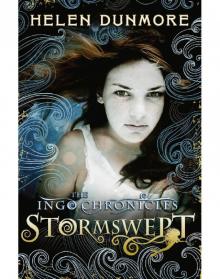 The Ingo Chronicles: Stormswept
The Ingo Chronicles: Stormswept The Deep
The Deep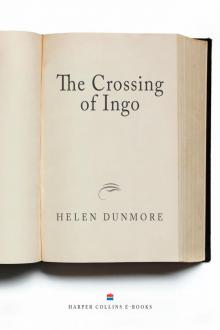 The Crossing of Ingo
The Crossing of Ingo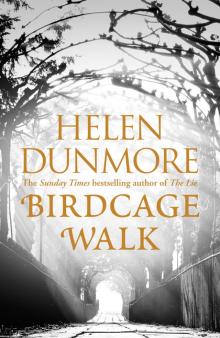 Birdcage Walk
Birdcage Walk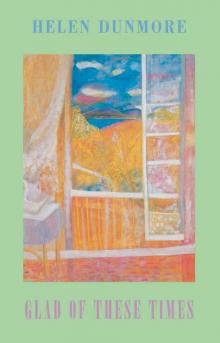 Glad of These Times
Glad of These Times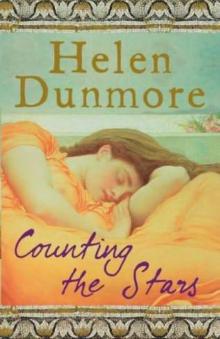 Counting the Stars
Counting the Stars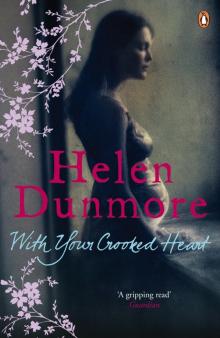 With Your Crooked Heart
With Your Crooked Heart Burning Bright
Burning Bright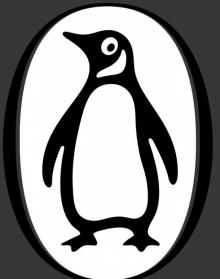 House of Orphans
House of Orphans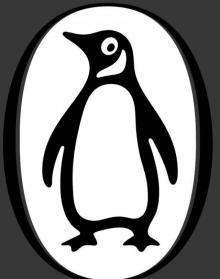 Mourning Ruby
Mourning Ruby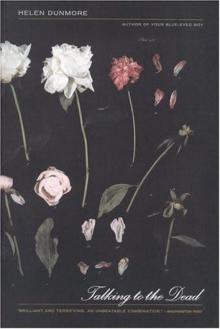 Talking to the Dead
Talking to the Dead Exposure
Exposure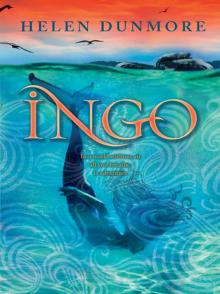 Ingo
Ingo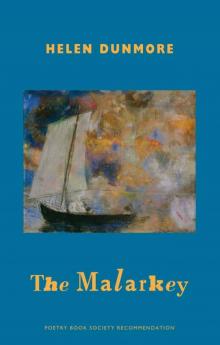 The Malarkey
The Malarkey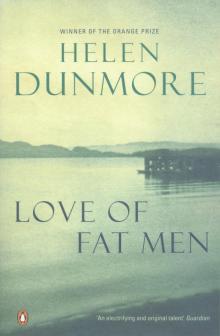 Love of Fat Men
Love of Fat Men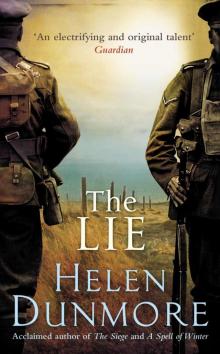 The Lie
The Lie The Siege
The Siege Inside the Wave
Inside the Wave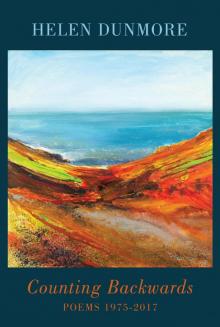 Counting Backwards
Counting Backwards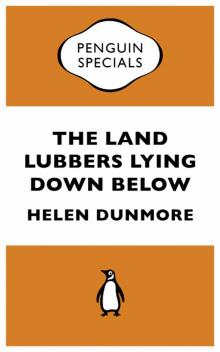 The Land Lubbers Lying Down Below (Penguin Specials)
The Land Lubbers Lying Down Below (Penguin Specials)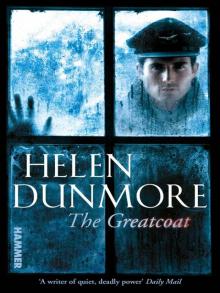 The Greatcoat
The Greatcoat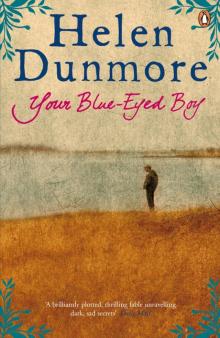 Your Blue Eyed Boy
Your Blue Eyed Boy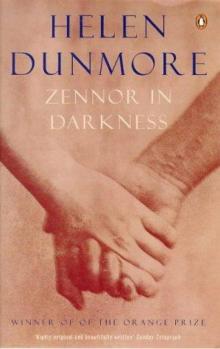 Zennor in Darkness
Zennor in Darkness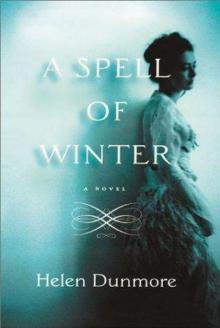 Spell of Winter
Spell of Winter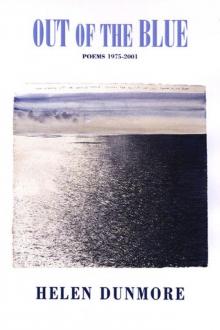 Out of the Blue: Poems 1975-2001
Out of the Blue: Poems 1975-2001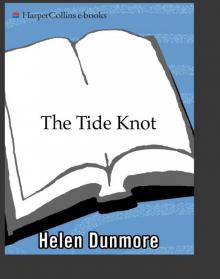 Tide Knot
Tide Knot The Betrayal
The Betrayal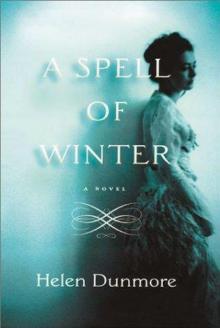 A Spell of Winter
A Spell of Winter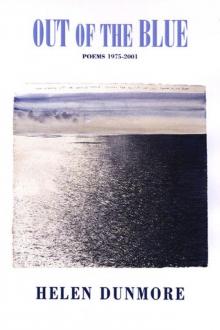 Out of the Blue
Out of the Blue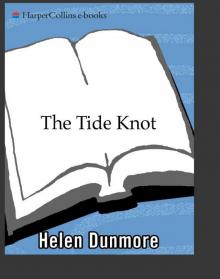 The Tide Knot
The Tide Knot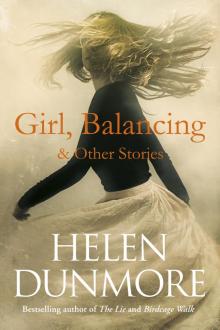 Girl, Balancing & Other Stories
Girl, Balancing & Other Stories Betrayal
Betrayal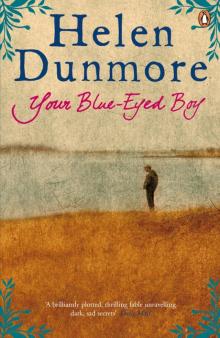 Your Blue-Eyed Boy
Your Blue-Eyed Boy